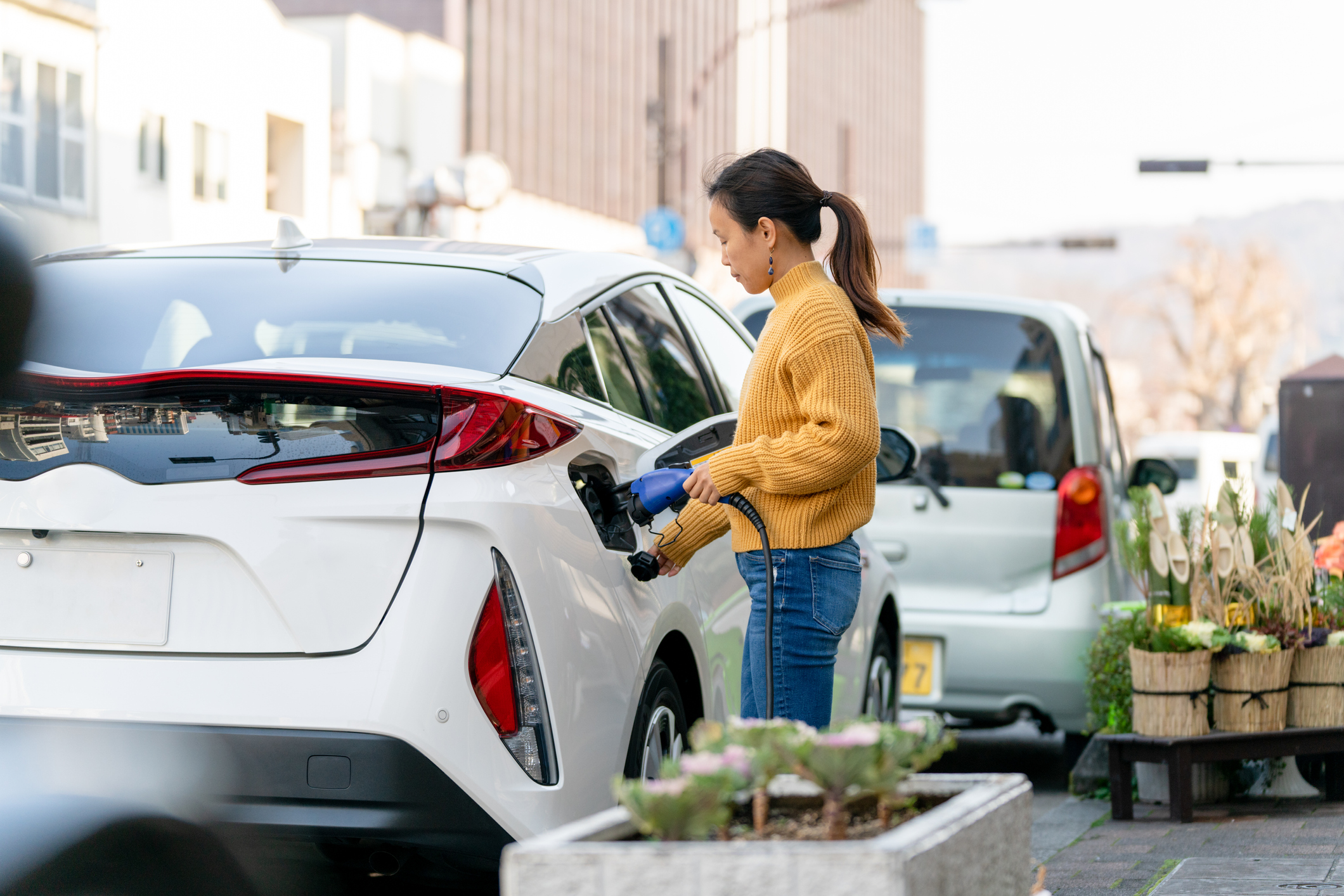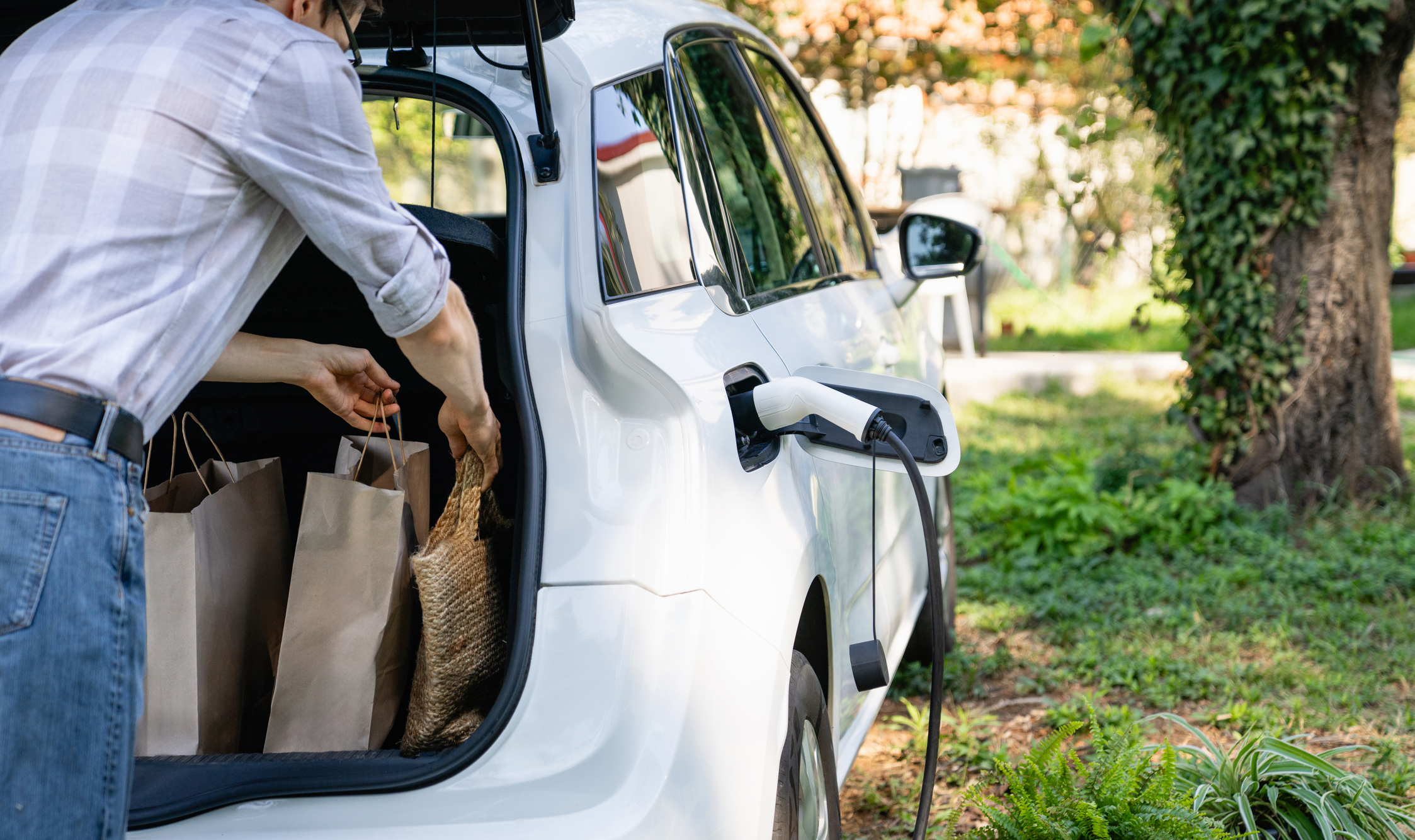Top 10 Reasons You Should Switch to An Electric Car

Apr 25, 2024
Did you know that the transportation sector is responsible for 28% of U.S. greenhouse gas emissions—many of which come from passenger cars? If you currently drive a traditional gasoline-powered car, switching to an electric vehicle (or “EV”) is one of the best ways you could reduce your carbon footprint and help make a positive impact on the environment every day. But the pros of electric cars don’t just stop at the environmental benefits—there are many other benefits that come with owning and driving electric cars. Here are the top 10 reasons you should consider swapping out your gas-powered car for a fully electric vehicle:
1. Electric cars are better for the environment.
One of the main advantages of electric vehicles might seem obvious, but it’s far too important to overlook: the environmental benefits. Electric cars produce significantly fewer emissions than gas-powered cars—not just while in use, but also throughout the entire lifecycle of the vehicle. And as our electric grid becomes increasingly cleaner as more clean energy sources are added to the grid (such as the solar farms we’re building here at CleanChoice Energy!), the carbon footprint of electric cars will only continue to decline. This makes EVs a powerful tool in the fight against climate change, which is more important than ever. Plus, with no tailpipe emissions, electric cars can also help reduce air pollution, especially for the most vulnerable communities who are disproportionately harmed by transportation emissions and air pollutants.
2. Electric cars are just as safe—if not safer.
Research has increasingly shown that electric vehicles are at least as safe as gasoline- and diesel-powered cars. In fact, the president of the Insurance Institute for Highway Safety (IIHS) stated that “we can now say with confidence that making the U.S. fleet more environmentally friendly doesn’t require any compromises in terms of safety.” Several EVs were awarded the 2024 IIHS Top Safety Pick, including the Audi Q4 e-tron, Hyundai Ioniq 6, and Subaru Solterra, so drivers who care about both safety and the environment have a variety of great options to choose from.
3. EVs are cheaper and easier to maintain than gas-powered cars.
With fewer parts, no internal combustion engine, no oil, less brake wear, and parts that require little to no regular maintenance, electric cars have lower repair and maintenance costs than their gas-powered counterparts. In fact, Consumer Reports found that EV owners spend half as much money maintaining and repairing their vehicles as owners of gas-powered cars. Fewer maintenance costs and requirements can save EV drivers lots of time, money, and headaches.

4. You’ll no longer have to pump gas—or spend gas money.
How nice would it be to no longer have to stand outside at a dirty gas station in the hot summer air, freezing cold, or pouring rain every few weeks? With an electric car, you can charge it overnight at your home (the same way you plug in your phone every night), and you’ll only need to stop and charge on longer road trips. Plus, you can save hundreds of dollars per year on fuel costs by paying for electricity for an EV instead of gasoline for a gas-powered car. Over the lifetime of the car, those savings can really add up.
5. You can receive rebates and tax credits.
Electric vehicle purchases can qualify for federal tax credits of up to $7,500, and many cities and states offer additional financial incentives to choose an electric car. Check out this list from the Department of Energy of all the rebates, tax incentives, and other programs offered in each state—and see how much you could save by choosing an EV!
6. The total cost of ownership for EVs is lower than gas-powered cars.
Electric cars often have a higher sticker price than gas-powered cars. But between the lower fuel costs, the lower maintenance and repair costs, and the tax rebates available, the total cost of owning an electric car over the vehicle’s lifetime is less than the total ownership cost of a gas-powered car. Over the vehicle’s lifetime, EV owners can save up to $10,000! By switching to an electric car, you can save green while going green.
7. More EV charging stations are popping up.
The number of public charging ports in the U.S. has consistently grown in recent years to more than 197,000 across the country. That number will only continue to rise as federal, state, and local governments invest more in charging infrastructure—especially thanks to the $2.5 billion that was included in the Bipartisan Infrastructure Law from 2021 for a charging and fueling infrastructure (CFI) grant program. Locating charging stations has also become easier in recent years: a number of smartphone apps have become valuable resources to help EV owners find charging stations in even the most remote parts of the country.

8. More EV options are becoming available.
Whether you’re looking for a sedan, SUV, hatchback, or even a pickup truck, there are already several great electric car options on the market—and the number of options will only increase in the coming years, as nearly every major car manufacturer in the United States has announced plans to ramp up the production of electric vehicles. No matter what type of car you’re looking for or what your budget is, you’ll be able to find your ideal EV.
9. You can enjoy special perks and other benefits—like reduced stress.
There are many benefits that exist to incentivize and reward electric car ownership. For instance, if you drive an EV, you can enjoy perks such as preferred parking spaces, access to some HOV highway lanes, free metered parking, and free and reduced tolls. Plus, many EV owners enjoy the smoother and quieter driving experience. One study even found that driving EVs can reduce stress and improve mental health, as drivers in EVs were more focused, calmer, and happier than drivers in gas-powered cars! If you’ve never driven an EV, try test driving one at a local auto dealer and experience it for yourself.
10. You’ll support the electric vehicle industry.
By switching from a gas-powered car to an electric car, you can support the growth of the EV industry and help increase demand for electric cars and EV infrastructure—which will help make it easier for even more people to make the switch, thus making our collective impact even greater! Fewer gas cars and more EVs on the road will ultimately lead to cleaner air and a healthier environment for us all.
Feeling inspired to make the switch? The next step is to look into all of the EV options and find the right car for you. Luckily, there are a ton of high-quality EVs from nearly every automaker, to meet every budget, lifestyle, and preference. Check out this blog post featuring 24 electric cars on the market this year to learn more about just some of the great options available. And if you’re interested in learning more about hybrid cars as well, this blog post covers how hybrid cars work and spotlights some of the top hybrids on the market this year.
Swapping out your gas-powered car for an electric car is a great way you can reduce your transportation emissions and help fight climate change. Once you make the switch, make sure your EV is charged with 100% clean, pollution-free energy from wind and solar sources—with zero dirty fossil fuels—by choosing Clean Electricity for your home. It’s one of the easiest and most impactful ways you can help protect our planet every day—without having to change your daily routine. Learn more about how you can sign up with CleanChoice Energy today to help create a better environment for future generations.
Stay in the know
Learn about clean energy, climate tips, special offers, and more



